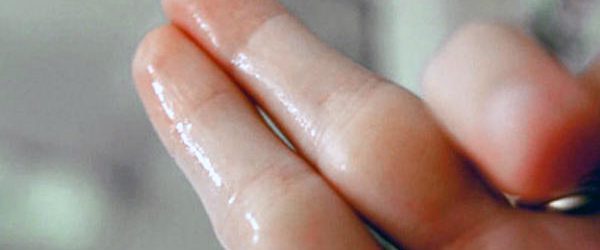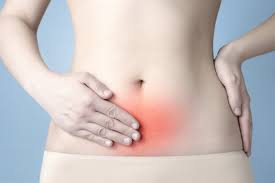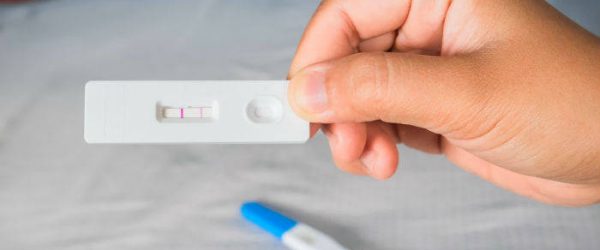How To Tell If Your Egg Was Fertilized: 4 Ways To Know Implantation

Last updated on July 26th, 2018 at 06:03 pm
Question: How to tell if your egg was fertilized? What are the symptoms and signs of early implantation?
Whether you are trying to get pregnant or not, it’s important you know the changes that will happen between your periods and early signs of pregnancy.
Expecting mothers use different techniques to determine their most fertile period, and when they do, they quickly have frequent sexual intercourse with their male partner.
Your fertile period are days within your menstrual cycle that makes it easy for you to conceive. There are about nine days that are fertile in your cycle – Six days before ovulation to three days after your ovulation (However, for most women, the egg will die in the first 12 to 24 hours after ovulation).
During your fertile days and after sexual intercourse, sperm moves through your watery cervical mucus into your fallopian tube and fertilizes egg released during ovulation.
After fertilization, you will begin to experience signs of pregnancy only after the fertilized egg is implanted into your womb. Soon after implantation, spotting and cramping pains in your abdomen may occur, and it usually will last for a few days.
If you do not get implantation cramps and spotting, it still does not mean you are not pregnant. Breast pain, headache, frequent urination, and change of mood are other pregnancy signs.
This article explains
- What ovulation means (and how to know when it happens)
- What is fertilization
- How to tell if your egg was fertilized
- Successful signs and symptoms of fertilization and implantation
- When to take a pregnancy test
What is ovulation?
Ovulation means that your ovaries, situated on each side of your abdomen, release an egg into your uterus for sperm to fertilize.
If you have a regular menstrual cycle, ovulation occurs about one or two weeks after the end of your menstrual period.
There are many signs that tell you are ovulating. Some are
1. Watery cervical mucus
This type of vaginal discharge makes it easy for you to conceive and eases the transport of sperm through your genital tract.
A watery, egg-like, jelly or slimy discharge occurs because of high estrogen hormones during ovulation. After ovulation ends, your cervical mucus becomes thick white discharge.
2. Increased basal temperature
After the release of an egg from your ovaries, your body hormones change with increased dominance of progesterone. This hormone causes your temperature to increases slightly than normal.
This can be detected if you’ve consistently monitored and recorded your basal temperature daily.
3. Abdominal pain
When ovulation occurs, women will feel a sharp pain either on the right or left side of the abdomen. This pain usually subsides in a few hours (Only 20 percent of women experience ovulation pain, so if you don’t, it doesn’t mean something is wrong).
Other signs of ovulation are feeling weak and tired, nausea, vomiting, abdominal distension and bloating.
What is fertilization?
After ovulation, the end part of the fallopian tube, called fimbriae, picks up the released egg into the uterus.
If you have a partner and already had unprotected sexual intercourse, sperm easily transports itself to the fallopian tube. With millions of sperm that are released during ejaculation, only one sperm can fuse with your egg.
During fertilization, the sperm fuses with the egg, and then, causes a reaction that prevents other sperm from fertilizing the same egg.
After fertilization, the embryo moves slowly back towards your womb where it finally attaches itself to the wall of the uterus and starts growing.
How to tell if your egg was fertilized?
If you’ve been expecting a baby and had sexual intercourse during your fertile days, you can get pregnant. After ovulation, the egg released slowing migrates to the fallopian tube. At the fallopian tube, it waits and quickly fertilizes a sperm if already present.
If you’ve not had sexual intercourse before ovulation, it decreases your chances to conceive. Usually, the viable sperm will take about seven days to die, and this means, if you had sexual intercourse about seven days ago, sperm would still be alive at your uterus waiting for “the released egg”.
On the other hand, your egg has a shorter life span and only last for 12 hours to 3 days. So, it’s important you track your ovulation period and have regular sexual intercourse during this time
If your egg gets fertilized and implanted, here are symptoms you will experience
1. Spotting from your vagina
After the egg and sperm fuse to form your baby, genetic materials are exchanged, and your baby begins to divide and slowly move to your uterus. At the uterus, the fertilized egg will dig through your endometrium and attach itself and start growing.
During this process of fixing itself to the endometrium, some women may experience vaginal spotting.
Implantation takes about 7 – 12 days after ovulation has occurred, and if you have a blood from your vagina that is darker than your usual menstruation, it’s could be a sign of successful fertilization and implantation.
2. Cramping in your lower abdomen
Pain in your lower abdomen is also common during implantation and occurs about a week before your next menstrual period.
3. Breast pain
After fertilization and implantation are completed, your baby starts growing and causes pregnancy hormones (progesterone and estrogen) to become elevated.
High levels of these hormones affect many parts of your body and your breast. During early pregnancy, you may experience breast pain and discomfort. Also, you may find that your breast feels much heavier than usual.
4. Increased cervical mucus
Another easy way to identify a successful fertilization and implantation is your vaginal discharge.
If you become pregnant, implantation occurs around the third week, which is a week from your expected next period.
Around this time, non-pregnant women will notice their vagina becomes dry, or they have a thick white vaginal discharge due to fall of estrogen and progesterone just before the start of period.
If pregnant, your hormone will stay elevated and cause you to feel wet due to excessive vaginal discharge.
Other signs of successful implantation are mood changes, headaches, pink or brown discharge from vagina, nausea, and vomiting.
When can I Take a pregnancy test?
Because you already are experiencing early pregnancy symptoms does not mean you will always get a positive pregnancy test.
Like most women who have been trying to conceive for a long time, you quickly want to check with a urine pregnancy strip to determine if these signs translate to pregnancy.
The truth is you may still get a negative result if you carried out test before your period. The right time to take a pregnancy test is after a missed period. To ensure you don’t get a false negative result, read your strips instructions and ensure you follow them.

Sofia
I had unprotected s*x in all my fertile days expect 1 day we skip but next day we had s*x again one day before ovulation. Should I have some hope I beCome pregnant? Or Not bc we won’t be able to have again till day
Question
Well I have a irregular period my boyfriend and I had s*x 2x Thursday on the 22nd an 1x Friday on the 23 all was unprotected…but I’m experiencing cramping and my period haven’t came on yet an slightly side cramps an backache ) but then I had s*x again on the 25th (protected ) but it only 28 day in this month… but on Friday thru Saturday I experienced thick white discharge but after I had sex on Sunday I experienced clear fluid and clear discharge like egg white ….so could I be pregnant ???